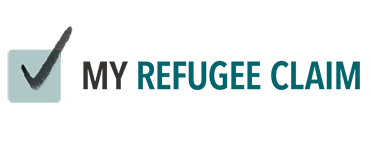The first thing CBSA does is to take your fingerprints and photos. These are your “biometrics.” The CBSA officer will take:
- fingerprints of you and your family members (14 years of age or older)
- photographs of all family members (14 years of age or older)
- all passports and travel documents (and maybe other identity documents such as birth certificates and driver licenses) and give you certified copies of them. You will get your documents back when you become a permanent resident or prepare to leave Canada.
Eligibility interview
The CBSA officer will then ask you questions to decide if you can make a claim in Canada. This is called an eligibility interview. This interview is not your refugee claim hearing, but your answers may be used later at your hearing to decide if you are a refugee.
They will ask you questions like these:
- Why did you come to Canada?
- Who or what are you afraid of in your country?
- What will happen to you if you go back to your country?
- Have you ever been arrested or detained? (for any reason)
- Have you made a refugee claim in another country?
- In what countries do you have legal status or citizenship?
- How did you travel to Canada?
- Who helped you come to Canada?
- Do you have relatives in Canada?
Usually, when you make a claim at a port of entry, you will then fill in some application forms with your information. You might be allowed to enter Canada without completing the forms and told to do them later. If this happens, you get an Acknowledgement of Claim letter. You must then complete your application online from inside Canada. (See Inland Claim for information about using the online portal.)
The information on the application forms includes:
- Name, place of birth, date of birth
- Jobs and other activities for the last ten years (or since you turned 18)
- Addresses for the last ten years (or since you turned 18). Include places you moved to or hid in.
- Education history
- Marriage history
- Any criminal history you (or your relatives) have
- Travel and immigration history
- Information about your parents
- Details about government, military, and other organizations you were involved with
- Details of any times you were detained, even for just a few hours
You must give this information for each family member in your claim.
It is important to be honest with your answers. Do your best to make sure the information you give is correct. Ask if you do not understand something. If you do not know an exact date, say that to the officer and on the form. You may have to explain your answers at your refugee hearing.
If the CBSA officer cannot finish the interview, they may detain you or ask you to return for an interview. If you can leave, you get an Acknowledgement of Claim letter. This shows you have started your refugee claim. The letter also has the date of the next interview. It is very important to go to the interview!
If you cannot make a claim
The CBSA officer may decide you cannot make a refugee claim in Canada if:
- You are a convention refugee in another country that you can go to
- You made a refugee claim in United States, United Kingdom, Australia, or New Zealand
- Canada already told you that you cannot make a refugee claim
- You made a refugee claim in Canada that was rejected, abandoned, or withdrawn
- You are dangerous, a criminal, or you have abused human rights
- Canada already made you a protected person
- Canada has already ordered you to leave in a removal order
- At a United States-Canada land border, you were told you could not enter because of the STCA
If CBSA says you cannot make a refugee claim, they may give you a removal order to leave Canada. They may detain you. They may let you go but tell you to come back for a meeting. At the meeting, CBSA may offer you a Pre-Removal Risk Assessment (PRRA).
If you are allowed to make a refugee claim
If you can make a refugee claim, you will get a:
- Refugee Protection Claimant Document (RPCD).
Proves who you are and that you are a refugee claimant. With an RPCD, you can get medical services through the Interim Federal Health Program and other services and benefits in Canada. This form has your Unique Client Identifier (UCI).
- Confirmation of Referral letter.
Shows that the CBSA has sent your file to the IRB-RPD. IRB-RPD decides if you can get protection in Canada.
- Medical Report form.
Tells you about the Immigration Medical Exam (IME) you must have (within 30 days).
- Claimant’s Kit. This has:
- certified copies of the identity and travel documents that CBSA took from you,
- Claimant’s Guide,
- copies of the forms you completed (if any),
- instructions to complete the application forms if you did not fill them out in person, and
- information from your interview. CBSA also sends these notes to the IRB-RPD.
- Basis of Claim Form (BOC) (one for each family member).
You must fill in and send your BOC Form to the IRB within 45 days. (The form might say 15 days but this is no longer true.) Check with the IRB or a legal representative that 45 days is the correct amount of time.
- Removal order in case your claim is not accepted (only enforced after your hearing if your claim is refused).
